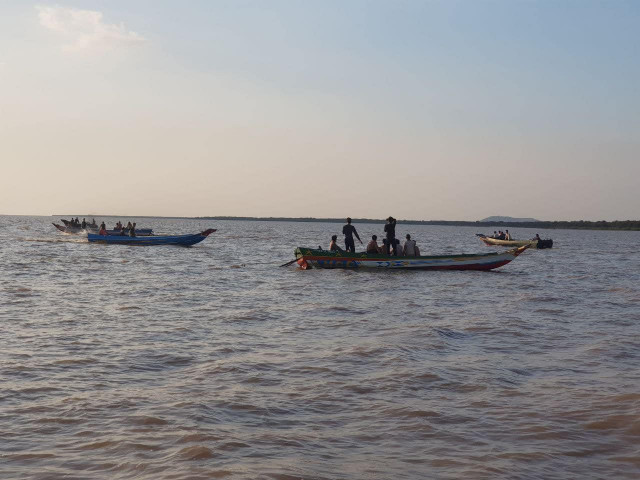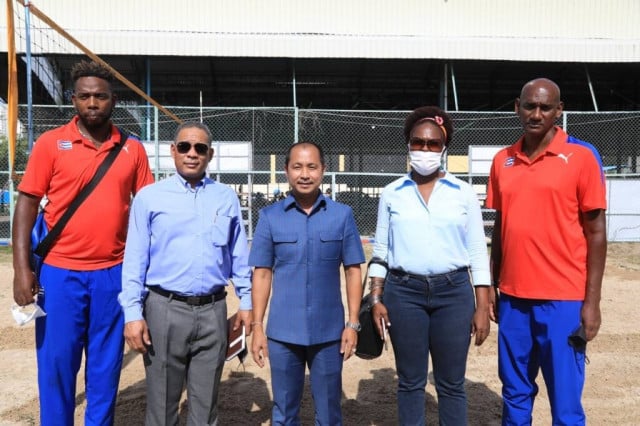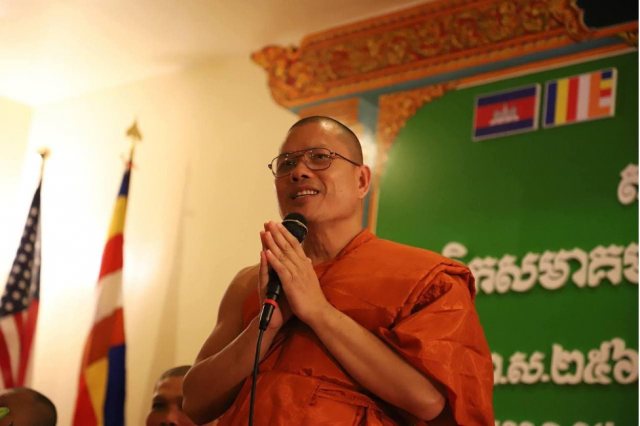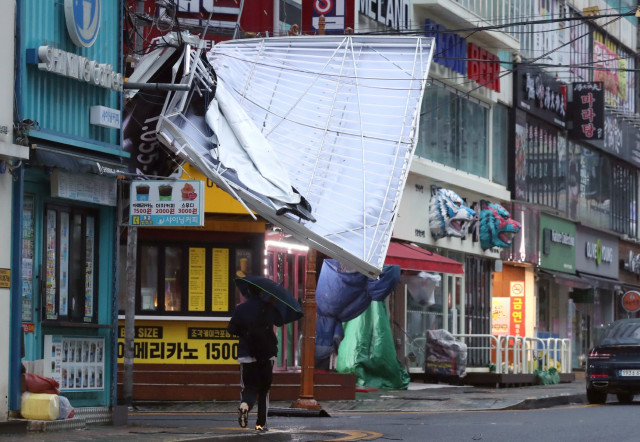Social Observers Want to See Long-Term and Effective Suppression of Fishing Crimes

- By Sam Sopich
- March 29, 2022 11:29 AM
Local authorities should go after big players: Hun Sen
PHNOM PENH – Cambodian social and political analysts say the order from the prime minister to crack down on major illegal fishing is the best prevention and protection; however, a short-term practice is a concern.
Prime Minister Hun Sen on March 23 ordered officials to crack down on major fisheries crime after complaining that only minor offenders were arrested.
If the fishing crime cannot be suppressed, there is no need to be a provincial governor or minister anymore, he mocked, adding that as for forest crimes, only small loggers are being cracked down on for the moment, but not big timber traders.
Yong Kim Eng, President of the People Centre for Development and Peace (PDP-Center), an NGO promoting the rule of law, concurred with Prime Minister’s order because ministers and local authorities will implement it to protect the Tonle Sap Lake’s natural resources.
However, he is concerned that the order won’t last in the long run.
“It’s a strong order that can push local authorities to strictly crack down on illegal fishing. But I’m concerned that actions will be taken in the short term only. When Prime Minister stops recalling it, authorities will stop implementing, as it already happened with previous orders,” Kim Eng said.
He went on that the authorities who don’t follow Hun Sen’s order should be sacked so that it makes an example out of them and push other authorities to pay attention to the order from the head of the country.
In the past, he said, officials who failed to follow an order were not punished, so the others seemed to take the matter for granted.
“It’s very important to warn and fire them if they cannot implement rightly,” Kim Eng said.
He suggested orders should have a follow-up mechanism to observe and evaluates the outcomes of their implementation. In such a scheme, independent media, people, associations, and communities could be a source to report the local authorities’ performances in enforcing a prime ministerial order.
Focusing on law enforcement
Similarly, CYN Research and Advocacy Manager Heng Kimhong said that he congratulated the actions of the prime minister in preventing major illegal fishing, but he worried about whether or not this order will be sustainable.
He said it is good thing that the PM realized that his officials are careless in their duties in preventing and protecting the natural resources of Tonle Sap Lake. He suggested the government should check the reasons behind the reckless and careless performances of the local authorities in monitoring and taking action on any natural resource crimes.
“The government should thoroughly investigate why illegal actions occur, whether the authorities do not know or they have conspired with fraudulent merchants. If so, those authorities should be warned not to commit corruption,” said Kimhong.
He went on that Cambodia should mainly focus on law enforcement rather than waiting for any order from the prime minister.
“If we wait for Hun Sen to give an order, there is only a short time implementation, but if we use law and punishment, it will be sustainable,” he said.
Prime Minister Hun Sen ordered the army and police to join the relevant ministries and institutions to crack down on major illegal fishing on the Tonle Sap Lake after he received information that fishing offenses in this natural lake are happening up large.
The Ministry of Agriculture, Forestry, and Fisheries also issued a press release on March 25 stating that the ministry has been taking strict measures to crack down on fisheries crimes around the Tonle Sap Lake highly effective, especially net fishing, and other crimes that seriously affect fishery resources.















